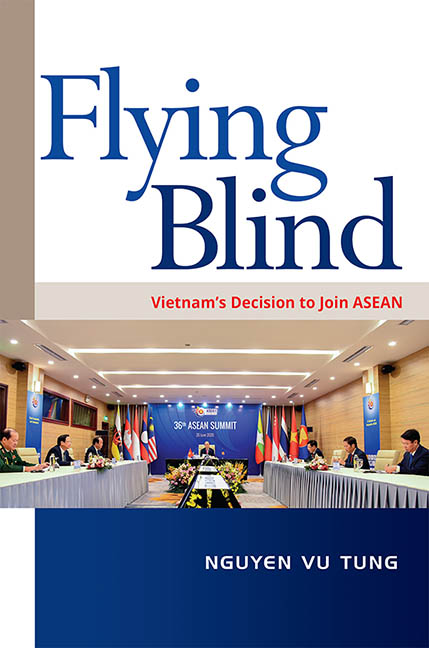Book contents
- Frontmatter
- Contents
- Acknowledgements
- Glossary
- 1 Introduction
- 2 The Paris Agreement and Vietnam: ASEAN Relations in the Early 1970s
- 3 1978 to 1985: Coexistence Between Two Opposing Groups
- 4 Joining ASEAN: Political and Strategic Factors
- 5 Jumping on a Moving Train: Vietnam Joins ASEAN
- 6 ASEAN Membership and Vietnam’s Shifting National Identity
- 7 Conclusion
- References
- Index
- The Author
6 - ASEAN Membership and Vietnam’s Shifting National Identity
Published online by Cambridge University Press: 08 October 2021
- Frontmatter
- Contents
- Acknowledgements
- Glossary
- 1 Introduction
- 2 The Paris Agreement and Vietnam: ASEAN Relations in the Early 1970s
- 3 1978 to 1985: Coexistence Between Two Opposing Groups
- 4 Joining ASEAN: Political and Strategic Factors
- 5 Jumping on a Moving Train: Vietnam Joins ASEAN
- 6 ASEAN Membership and Vietnam’s Shifting National Identity
- 7 Conclusion
- References
- Index
- The Author
Summary
In the absence of a detailed understanding of the ASEAN working procedures and principles as well as institutional arrangements to promote cooperation, the decision to join ASEAN was, according to many officials whom the author interviewed, “the political will” of Hanoi to further commit itself to the region. What then was the nature of this political will? The decision to seek an early admission to the organization created additional pressures on the bureaucratic system, and brought about “new difficulties and challenges in the course of economic development”. Moreover, as discussed earlier, ASEAN membership did not ensure specific security benefits for Vietnam. What then were the real purposes of Vietnam's membership in ASEAN? This chapter will further trace the official policy statements as well as the internal debates in Hanoi related to the question of ASEAN membership. Hopefully, tracing the internal debates among Hanoi's decision-makers on foreign policy in general and on the ASEAN membership in particular would shed light on the abovementioned questions.
MORE ABOUT THE INTERNAL DEBATES
Only fourteen months elapsed between the February 1993 statement of “joining ASEAN at an appropriate time” and the April 1994 statement about “seeking an early membership”. Then after another three months, that is in July 1994, Hanoi took the decision to join ASEAN. These developments showed that perceived differences between Vietnam and ASEAN did not prevent Hanoi from making the decision for an early ASEAN membership. And since the process of joining ASEAN was not so “long and complicated” as had been predicted, we should look for more a plausible logic in the way Hanoi perceived the similarities between Vietnam and ASEAN as the underlying reasons for Vietnam to join the organization.
SIMILARITY IN POLITICAL STRUCTURES AND PRACTICES
National interests, according to the classical and structural realist as well as liberal institutionalist approaches, relate to the very survival of states existing in the anarchical environment of international politics that creates continuous wars and conflicts. Yet, the nature of international politics in the Third World has more to do with the survival of the ruling regimes that act in the name of their countries.
- Type
- Chapter
- Information
- Flying Blind , pp. 169 - 200Publisher: ISEAS–Yusof Ishak InstitutePrint publication year: 2021



